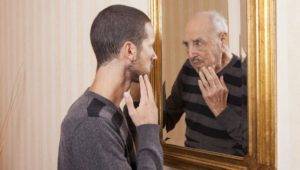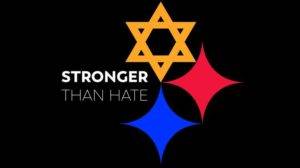Excited to share that our new book is now available on Kindle and in paperback!
Excited to share that our new book is now available on Kindle and in paperback!
We share Al HaNissim for Purim (and Channukah too!) acknowledging with gratitude the miracles we’ve experienced. Thanks to Six13 for this great music.
Wishing everyone safety and health this Purim and Shabbat, and may all of us receive the blessings of a vaccination soon!
Shabbat Shalom!
Everything is turned upside down due to the pandemic. Our High Holidays are no different.
What do you need to make this a meaningful experience for you?
L’Shana Tova uMetuka
One Day
Something amazing happened in Haifa a couple of years ago. Three thousand people gathered to sing a song- Matisyahu’s song One Day. Words in Hebrew, Arabic, and English combined into a single voice of love and hope.
Enjoy, Shabbat Shalom!
Rabbi Yosef Goldman brings the new music to the phrase Ein Od, No Other. It is part of the Aleinu prayer we share at the conclusion of our service praying for the time when we all recognize the supremacy of the Eternal.
Shabbat Shalom
 Like so many, I am frustrated. In large measure, I am frustrated with myself. It is me who needs the work. Privilege, whiteness, racist and similar words or phrases can be jingoistic, masquerading in a cloak of empathy. They really have no weight until I confront who I am with honesty and vulnerability. I have struggled with what I can only describe as our own hypocrisy; far too often we preach and we teach, but we do not fully live the Jewish values we espouse. How could this not be at the forefront of everything I do for as long as I have been doing it? What took me so long, why now? I think back at those interesting words at the beginning of Exodus: And God heard their cry and remembered the Covenant God made. What took God so long? There were 400 years of suffering and oppression. What took God so long?
Like so many, I am frustrated. In large measure, I am frustrated with myself. It is me who needs the work. Privilege, whiteness, racist and similar words or phrases can be jingoistic, masquerading in a cloak of empathy. They really have no weight until I confront who I am with honesty and vulnerability. I have struggled with what I can only describe as our own hypocrisy; far too often we preach and we teach, but we do not fully live the Jewish values we espouse. How could this not be at the forefront of everything I do for as long as I have been doing it? What took me so long, why now? I think back at those interesting words at the beginning of Exodus: And God heard their cry and remembered the Covenant God made. What took God so long? There were 400 years of suffering and oppression. What took God so long?
It does not assuage my guilt to take solace in the human time it took God. Despite knowing I cannot change the past, I struggle with how I affect the future. This only adds to the frustration of knowing I have not done enough to bring us farther along. And do I really believe in what I proclaim?
Do I have the fortitude and courage to look deep within and grapple with who I am and what I must do to change? Only then will I be whole enough to join in the battle that our society and humanity as a whole must wage to create the world I profess to believe in. Will I cross over or find contentment on this side in my narrow but for the most part comfortable space.
We have had opportunities before. We have moved forward, slowly, haltingly, stumbling often one step forward and two steps back. In actuality, we have lived with the opportunities to make change continuously. What makes this moment different? Will I be like Nachshon, wading deliberately into the unknown Sea of Reeds or be one of those longing for the land of Goshen, that narrow harsh place, whose evils are known but tempered by our thoughts of powerlessness?
Prescriptions are being bandied about. Some might be curative and others little more than a bandage. Everywhere there are now lists of things proposing changes ostensibly serving to right society’s wrongs. How could these lists be created so quickly? Seeing these in the immediate aftermath of George Floyd’s murder makes me wonder if the answers been known all along. This would imply either the problem is not that complicated or we did not have the strength to enact these prescriptions. We need to ask ourselves which it is. Or is the problem so deep and thorny as to render it all but impossible to unravel? And we have left the status quo because we are overwhelmed at the enormity of the issue. At this moment in time are we willing to find out? Will this time different from all of the other times? Am I up to the challenge?
To everyone who is will be at the Seder table this evening, wishing you a Chag Sameach.
Next Year in Jerusalem, Next Year Face to Face (in person)
We still believe that there is a better place, a promised land, and the way there is through the wilderness. There is no way for us to get from here to there, except by joining hands, marching together. (Mishkan Tefillah, adapted)
If you can, be at the rally in New York this Sunday to express solidarity as a first step toward achieving the values that are at the center of Judaism and America. Together as the Jewish community of the United States with all others of goodwill, we will overcome forces of hatred and bigotry. There is much work to be done and miles to go before we sleep. Together we can get there.
Stopping by Woods on a Snowy Evening
By Robert Frost
Whose woods these are I think I know.
His house is in the village though;
He will not see me stopping here
To watch his woods fill up with snow.
My little horse must think it queer
To stop without a farmhouse near
Between the woods and frozen lake
The darkest evening of the year.
He gives his harness bells a shake
To ask if there is some mistake.
The only other sound’s the sweep
Of easy wind and downy flake.
The woods are lovely, dark and deep,
But I have promises to keep,
And miles to go before I sleep,
And miles to go before I sleep.
Shabbat Shalom
Hanukah is a special time.
For most of us, we only get part of the story behind Hanukah. It is a mix of celebrating a victory over oppression, particular identity over assimilation, an opportunity to celebrate the Sukkot holiday that had been earlier denied. And of course, let’s not forget Hanukah is the miracle of light when the purified oil miraculously lasted eight days until the new holy oil was available.
And with all of this part of the Hanukah story, we relegate it to “minor” status and often criticize those who make a big deal of the holiday as though it was something truly important- like Shavuot for example. I come down on the side that embracing Judaism is a good thing- whether it is done for a major or minor holiday seems less important. It is up to us to find meaning and to infuse our traditions and rituals with the things that help all of us resonate with them.
Mordecai Kaplan is quoted in Siddur Lev Shalem from his work, Meaning of God in Modern Jewish Religion, that the Jewish Religion imbued our rituals with such “universal, ethical, and spiritual significance that the issue involved was felt to be not only the saving of the Jewish people but the saving of all that made life worth living.” Kaplan was referencing the historical challenges of the various conquerors in our history. But the Al Hanissim prayer acknowledges a certain timelessness; The prayer ends “Bayamim hahem, uvazman hazeh,” “in those days and in THIS time.”
This year we are on the other side of the Winter Solstice. In other words, the darkest days are behind us and every day brings increasing light. We can only hope that this is true in all ways to interpret this. But it is up to us to determine what is important and worth fighting for. At the time of celebrating the re-dedication of the Holy Temple, to what is it that we are prepared to rededicate ourselves?
Chag Urim Sameach and Shabbat Shalom
 The tragic murder of 11 people one year ago in Pittsburgh is a harsh reminder that hatred is real and we are not always in control of events. Things often happen to us. As painful, hurtful, or even devastating as something can be, how we react is in our control. What is the life-lesson that we learn and how do we actively embrace that life lesson going forward?
The tragic murder of 11 people one year ago in Pittsburgh is a harsh reminder that hatred is real and we are not always in control of events. Things often happen to us. As painful, hurtful, or even devastating as something can be, how we react is in our control. What is the life-lesson that we learn and how do we actively embrace that life lesson going forward?
Do we react cynically or with an open, albeit wounded, heart? Can we forgive? Will this event haunt us holding us back, or compel us to move onward? What is the vision of the future we see that is shaped by what happened, what is the world we want to see, and how will we get there?
I struggle with an anger and pain that could be overwhelming, especially as one of the Rabbis initially deploying to Pittsburgh with the Red Cross in the immediate aftermath of the shooting. Our Jewish tradition helps me re-center myself. Here I can embrace the timeless values that understand the human condition and provide a framework for a just society where we all might live in peace, based on the idea that we should treat our neighbors as ourselves. But it is a hard climb up to that mountaintop.
This is the challenge of Pittsburgh. Our hearts ache for those lost as a result of violent Anti-Semitism. We take solace in the love of our neighbors and find strength standing shoulder to shoulder with other people of goodwill to continue to strive for the kind of just society we want America to be.
Our tradition is one of deeds. Our response to this tragedy needs to be more than a feeling. There are many ways to respond through civic involvement and community activism. Judaism requires that we belong to a community committed to promoting our values be it a synagogue, philanthropy, or civil rights group. The important thing is that you are compelled to respond with actions to live the values of our tradition and to build a better world. What will you do?
Zichronam Livracha and Shabbat Shalom.